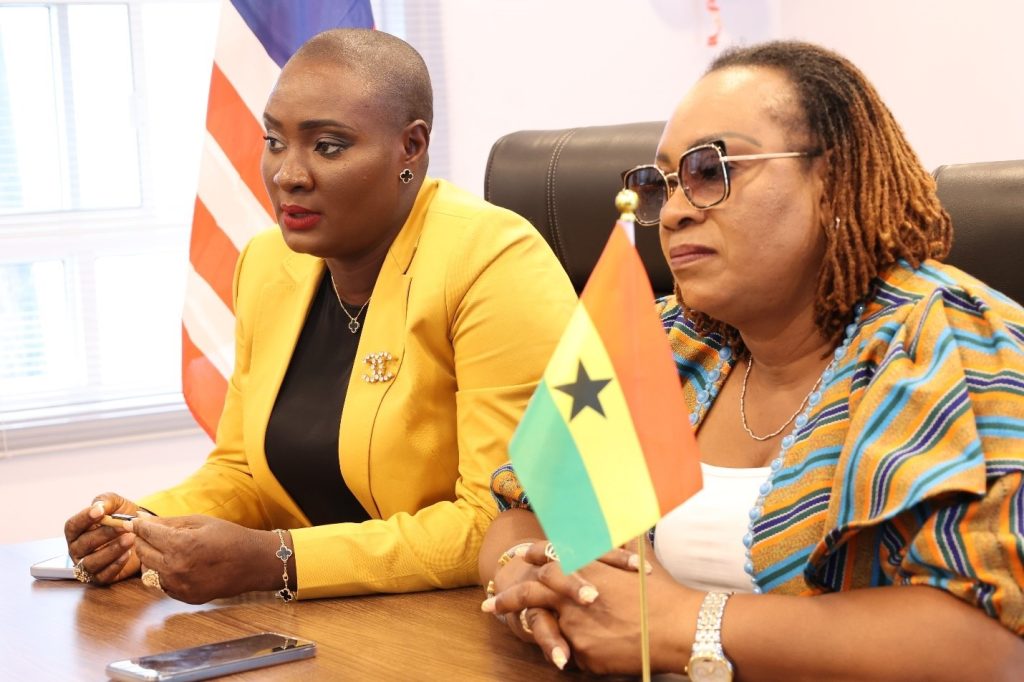The 15th Ministerial Fisheries Conference of the Fisheries Committee for the West Central Gulf of Guinea (FCWC) commenced in Monrovia, Liberia, on December 11, 2024, bringing together a significant assembly of regional leaders, technical experts, policymakers, and international partners. The three-day conference, hosted by Liberia, aims to address critical challenges facing the fisheries sector in the region and foster stronger regional collaboration. Preceding the ministerial meeting scheduled for December 13th, two days of technical discussions were held, setting the stage for high-level deliberations and decision-making. Liberia’s hosting of the conference marks a pivotal moment for the nation, as it is poised to assume the chairmanship of the FCWC, signifying its commitment to regional leadership and collaborative efforts in addressing the complex issues affecting the fisheries sector.
Mr. William Y. Boeh, Deputy Director General for Technical Services at Liberia’s National Fisheries and Aquaculture Authority (NaFAA), welcomed the diverse gathering of participants and highlighted the conference’s significance in developing actionable strategies and strengthening regional partnerships. He emphasized the importance of the event for Liberia, showcasing its dedication to regional cooperation and its readiness to lead the FCWC in tackling the numerous challenges confronting the fisheries of the West Central Gulf of Guinea. Mr. Boeh acknowledged the presence of experts and decision-makers dedicated to protecting this vital resource and stressed the urgency of addressing threats to food security posed by issues such as overfishing, illegal, unreported, and unregulated (IUU) fishing, climate change, and governance gaps.
Representing NaFAA Director General Emma Metieh Glassco, Mr. Boeh underscored the multifaceted challenges plaguing the region’s fisheries, highlighting the need for collective action. These challenges not only impact current food security but also pose a significant threat to future generations, necessitating a comprehensive and sustainable approach to fisheries management. The conference serves as a platform for member states to collaborate on developing effective solutions and strategies to mitigate these challenges and ensure the long-term health and productivity of the region’s marine resources.
Mr. Fred Antwi-Boadu, Executive Director of the Ghana Fisheries Commission and Chairman of the Advisory and Coordinating Committee, officially opened the 15th Ministerial Conference, emphasizing the importance of strengthening cooperation among the six FCWC member countries. He highlighted the conference’s focus on promoting sustainable fishing practices, decent work within the sector, and enhancing the resilience of marine ecosystems. Mr. Antwi-Boadu stressed the interconnectedness of these objectives with the overall health of the oceans and the prosperity of the people who depend on them. By adopting a comprehensive approach that prioritizes both sustainability and equity, he argued, the FCWC countries can ensure the continued contribution of marine resources to future generations.
Recognizing the immense economic, social, and environmental importance of the fisheries sector in West Africa, Mr. Antwi-Boadu emphasized its role in providing livelihoods, supporting food security, and contributing to the regional economy. The conference provides a crucial opportunity for member states to address the complex challenges facing the sector and develop collaborative strategies for sustainable fisheries management. The discussions and outcomes of the conference are expected to contribute significantly to the long-term health and productivity of the region’s marine resources and the well-being of the communities that depend on them.
Mr. Antoine Gaston Djihinto, Secretary-General of the FCWC, echoed the concerns raised regarding the multifaceted and complex challenges facing the fishing sector in the region, emphasizing the responsibility to future generations. He called for the development of an integrated, responsible, and sustainable governance framework for fisheries resources, combining rational exploitation with conservation efforts and ensuring equitable social and economic benefits for local populations. The Advisory and Coordinating Committee session, according to Mr. Djihinto, offers a valuable opportunity for dialogue, analysis of regional issues, and the formulation of concrete solutions. He expressed confidence that the expertise and contributions of the participants would lead to robust and practical recommendations for the Ministerial Conference, paving the way for effective action and progress in addressing the challenges facing the fisheries sector in the West Central Gulf of Guinea.


